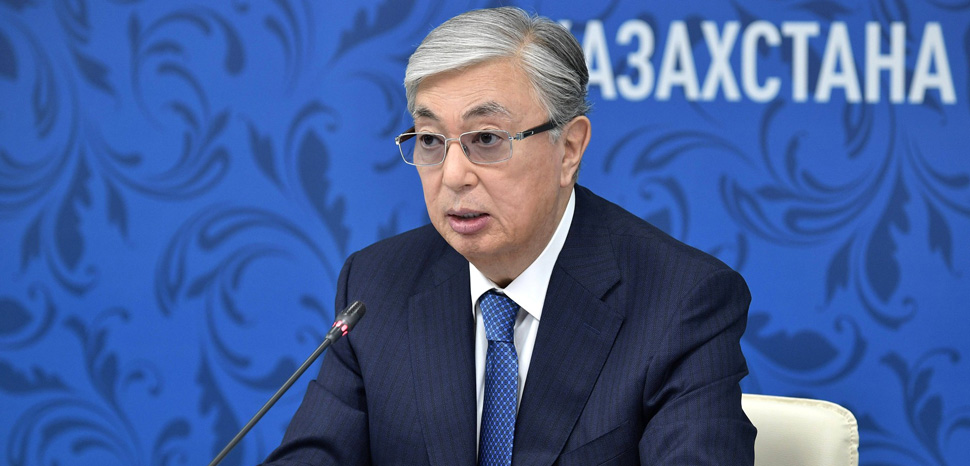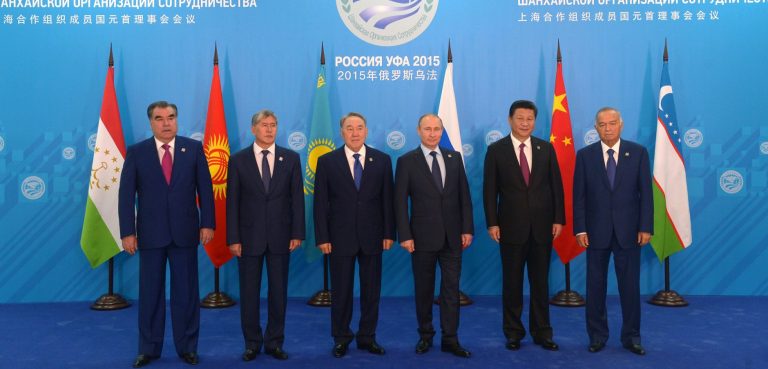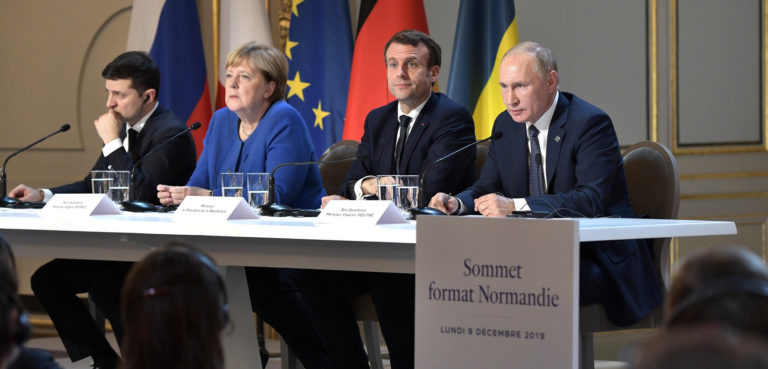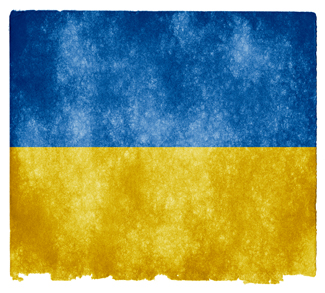“We are talking about the final transition from a super-presidential form of government to a presidential republic with a strong Parliament,” promised Kazakhstani President Kassym-Jomart Tokayev during his 16 March State of the Union address. After January’s violent protests, the Kazhastani president pledged to change the political system of his Central Asian nation, by encouraging the formation of opposition parties, cracking down on nepotism, and limiting presidential powers.
In this speech, President Tokayev explained that the country was entering a new chapter of its history, a “new Kazakhstan.” Plans for this “new” country occur at a time of geopolitical turmoil due to the Russian invasion of Ukraine; key concerns for the Central Asian state are the geopolitical consequences of the Ukraine war and the resulting sanctions against Russia, particularly regarding food security.
Kazakhstan and the Ukraine war
During his speech, the President did not directly talk about the Russian invasion of Ukraine, though he mentioned the “sharp aggravation of the geopolitical situation.” He also drew parallels to the recent past, as “the current international situation is in many ways reminiscent of the most acute phases of the Cold War,” noting that “tough sanctions confrontation is already leading to serious costs not only for individual countries but for the entire global economy.”
Given Kazakhstan’s close commercial and trade ties with Russia – bilateral trade reached over $25 billion in 2021, according to Russian figures – in addition to them being direct neighbors, it is inevitable that the sanctions placed against Russia will affect Kazakhstan in some manner.
Food security is an obvious concern, as the “events in Ukraine led to a sharp jump in food prices.” The Russian government has already banned the exports of wheat, barley, rye, and corn from 15 March to 30 June, while raw and white sugar exports were banned until 31 August to ensure the supply for its own citizens. Inevitably, this will put pressure on the Kazakhstani government to ensure that internal demand does not suffer, particularly regarding grain and sugar.
Some of Nur-Sultan plans include providing “farmers with the necessary volume of fuel and lubricants at affordable prices.” The state is also discussing state support for the agro-industrial complex to ensure that food prices remain affordable and avoid panic and hoarding. In mid-March, the Kazakhstani government announced plans to build a new sugar mill to increase domestic supply. While the timing may be a coincidence, it is also likely that this announcement is a response to the war and Moscow’s new policies.
It is worth noting that some senior Kazakhstani government officials have recently expressed that they do not want their country to be behind a new iron curtain, according to exclusive interviews carried out by the German newspaper Die Welt. Moreover, a 28 March webinar organized by the Program on New Approaches to Research and Security in Eurasia, titled “The View from the South: The War from a Central Asian and Caucasian Perspective,” also discussed the consequences of the invasion. One of the speakers, Associate Professor Caress Schenk at Nazarbayev University (Kazakhstan), mused that Kazakhstan could look “south,” as this would be a “good opportunity for [regional] development.” Nur-Sultan could seek to “cooperate regionally without aggravating Russia too much,” Professor Schenk explained. Indeed, Kazakhstan could use regional cooperation with its Central Asian neighbors and partners to offset some of the consequences of the ongoing conflict and sanctions.
Changing the rules of the old game
A key pledge made by President Tokayev focused on reducing the powers of the president and cracking down on nepotism. He noted “today, literally everything in our country revolves around the president, and this is fundamentally wrong. We need to gradually move away from this practice;” as a first step to separate political parties and the state, he has already announced “my intention to leave the post of chairman [of the Amanat political party] this year.”
Moreover, “for the closest relatives of the president, a legislative ban will be introduced on holding positions of political civil servants and leaders in the quasi-public sector.” He added that nepotism “inevitably leads to negative personnel selection, becoming fertile ground for the flourishing of corruption.” Tokayev is not solely talking the talk.
In recent months, his administration has sought to limit the control on the country by former president Nursultan Nazarbayev and his family members. One high profile individual is Kairat Satybaldy, a businessman and former security officer, who has been arrested for “alleged embezzlement at the expense of Kazakhtelecom, the state-controlled telecoms operator.” It is believed that he may be linked to the January violence as well. Similarly, Bolat Nazarbayev, a brother of the First President, “voluntarily” suspended the work of his cryptocurrency mining farm, as authorities seek to limit these companies due to their excessive use of electricity, which can cause power outages.
To promote political participation and encourage the creation of new political parties, the president proposed that “the registration threshold should be [decreased] from 20 to 5 thousand people.” It will be important to monitor whether these changes help create a vibrant political opposition in the country, where new voices are heard and elected to positions of power.
The January violence
Of obvious importance in the speech was the recent violence in the country, which the president referred to as “the January events [that] shook society.” He also repeated how “many of our compatriots died due to the criminal actions of radicals and terrorists.”
A consequence of the January violence was a crackdown on prominent Kazakhstanis that may have organized some of the violence, like the aforementioned Satybaldy. The former heavyweight Karim Masimov, was fired from his post as security chief and then arrested for treason due to the violence. “Among the traitors are the leaders of the military and special agencies who prevented law enforcement agencies from taking legal action and misinformed the country’s leadership about the situation in the cities,” the president explained.
The Kazakhstani government was internationally condemned for over 12,000 arrests; while most individuals have been released by now, arbitrary arrests and the deaths of some 225-250 individuals (the exact figure is still unclear) are an obvious and rightful concern of the international community – the invitation of Russian and other CSTO troops did not help the situation.
Conclusions
The Russian invasion of Ukraine will dramatically affect global geopolitics, while sanctions against Russia will also affect neighboring states, particularly those that have close commercial and trade relations with Moscow. For Kazakhstan, the war comes at a time when its international image was severely affected by the January protests and violence. Hence, President Tokayev’s most recent speech had many delicate issues to address, from internal reforms to end nepotism and promote political change, to assuring citizens that the Central Asian state is ready to withstand the effects of the war.
Wilder Alejandro Sánchez is the President of Second Floor Strategies and an analyst of global defense, trade, and geopolitical issues. His recent book chapter discusses Kazakhstan’s economic diversification strategies, which appeared in the edited book Central Asia and the Covid-19 Pandemic.
The views expressed in this article belong to the authors alone and do not necessarily reflect those of Geopoliticalmonitor.com




